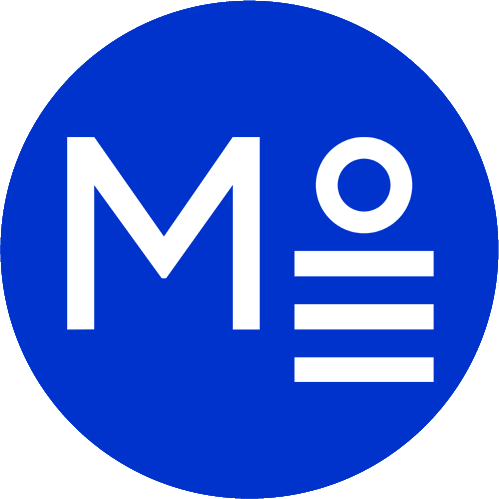By using our site, you agree to our use of cookies to deliver a better experience. Click to learn more. |
Crew Safety Guidelines
The Role of Online Job Platforms in Yachting
In the yachting industry, where luxury and high standards reign supreme, there's an ever-present need for employers to hire swiftly to fill their open positions. This necessity has led to an increasing reliance on online platforms, with sites like Meridian revolutionizing how crew members are being hired in our industry. These platforms offer a digital space where employers can quickly post job opportunities and prospective crew members can apply with ease. This shift to digital has made the job market more accessible, but it also brings new challenges that both employers and crew must navigate.
Benefits of Online Job Platforms
Online job platforms have several advantages. They provide a wide range of opportunities, making it easier for crew members to find positions that match their skills and for employers to reach a larger pool of candidates. Additionally, these platforms often streamline the application process, making it more efficient for both parties.
Risks Associated with Online Job Platforms
The use of job boards like Meridian, Indeed, LinkedIn, and others is not without risks. Since these services offer free job postings, it is impossible to verify the legitimacy of each employer or job listing. To be clear, Meridian does not verify the employers that post jobs on our platform or the validity of the jobs that employers post. This lack of verification can expose users to various risks, including fraudulent job offers, identity theft, and personal safety concerns. It's crucial for users to be aware of these risks and take steps to protect themselves.
Navigating Online Job Platforms Safely
Successfully navigating online job platforms requires a balance between leveraging their benefits and being aware of their limitations. Understanding that employers and the jobs they post are not verified, crew members should approach each opportunity with a critical eye and conduct their own research to verify the legitimacy of any employer, job post or job offer.
Understanding the Risks in Yachting Employment
The yachting industry, while offering exciting and often lucrative opportunities, also presents unique risks, especially in the hiring process. Understanding these risks is crucial for anyone looking to work in the yachting industry.
Common Risks in Yachting Employment
- Scams and Fraudulent Job Offers: With the ease of posting on online platforms, scammers can easily pose as legitimate employers, offering fake jobs to unsuspecting crew members.
- Identity Theft: Sharing personal information during the application or interview process can lead to identity theft if the information falls into the wrong hands.
- Personal Safety Concerns: Meeting with potential employers, especially in private or remote locations, can pose significant safety risks.
The Lack of Verification on Free Job Platforms
Platforms like Meridian, Indeed, LinkedIn and others, while providing valuable services, do not have the resources or policies in place to verify each employer or job listing. This lack of verification can lead to an increase in fraudulent activities on these platforms.
Navigating These Risks
To safely navigate these risks, yacht crew members need to be vigilant and proactive. It involves gathering as much information about each yacht and employer before interviewing, being cautious about sharing personal information, and being aware of the common signs of scams and fraudulent activities.
Strategies to Identify Legitimate Job Postings
- Research: Conduct in-depth research on the job post and the employer. Don't be afraid to ask the employer detailed questions. If they become offended, become cautious.
- Consistency: Check for consistency in job details across different platforms.
- Verification of Information: Ask to speak to other crew members employed on the yacht to cross-reference the information provided in the job post.
Job Posting Red Flags
- Vague Job Descriptions: Legitimate jobs typically have detailed descriptions. Vague or overly broad listings can be a sign of a scam.
- Requests for Personal Information: Any job that asks for sensitive information such as a driver's license, passport, or SSN should be approached with caution.
- Request for Advance Payment: Legitimate employers will not ask for money for background checks, recruitment fees, training, or travel.
- Immediate Job Offers: Offers made without proper verification of your experience or qualifications should be treated with skepticism.
- Too-Good-to-Be-True Offers: Offers that seem too generous for the qualifications required can be deceptive and an attempt to harm you physically or financially.
- Specific Advertising for Certain Crew: Legitimate employers do not discriminate based on age, sex, race, or nationality.
- Poor Communication: Unprofessional communication, including poor grammar and unprofessional email addresses, can be a warning sign.
- Unsolicited Job Offers: Be cautious of job offers for positions you haven't applied for, especially if they come from social media.
How to Respond to Red Flags
- Trust Your Gut: If something feels off, it's okay to walk away. There are plenty of legitimate opportunities out there.
- Seek Advice: Don't hesitate to consult industry professionals, friends, mentors, or legal advisors if you're unsure about a specific employer, job post, or job offer.
- Cease Communication: Do not engage further with the suspected scammer.
- Report Suspicious Activity: Notify the job platform and authorities about any fraudulent behavior you encounter.
- Raise Awareness: Share your experiences to help others avoid similar scams.
Key Safety Measures for Yacht Crew
As a yacht crew member, prioritizing your safety during the job application and interview process is crucial. Here are some key safety measures to consider.
Public Meeting Places
Always choose public locations for job interviews. Cafés, public marinas, or busy restaurants are ideal settings. Requesting to meet with you for an interview after hours and alone is not safe. Suggest a public place and from 9 am – 5 pm.
Informing a Trusted Person
Keep a trusted friend or family member informed about your interview details – where you're going, who you're meeting, and when you expect the interview to end. Better yet, ask them to come along and stay nearby while the interview is taking place.
Verifying the Seafarers Employment Agreement (SEA)
If possible, ask about the SEA during initial phone conversations and request a chance to review it before the interview.
Handling Personal Documents and Money
Be cautious about providing personal documents or money to potential employers. Legitimate employers will not require such items before officially hiring you.
Verifying Employer's Email Address
Check the employer's email address for authenticity. Legitimate emails in the yachting industry often include the name of the yacht or recruiter. Example: CaptainJackSparrow@BlackPearl.com or JeremyP@PrimeRecruitment.com
Trusting Your Instincts
If you feel uncomfortable or if something seems off, trust your instincts. It's better to be cautious and potentially miss an opportunity than end up in a harmful situation.
Employer Background
Conduct thorough research on the employer or yacht. Seek out references, reviews, or any history that sheds light on their reputation and legitimacy.
Nature of the Job
Understand the specific duties and conditions of the job. Ensure that what is advertised aligns with the actual responsibilities and conditions onboard.
Building a Safe Job Search Strategy
Having a well-thought-out strategy when searching for jobs in the yachting industry is key to ensuring a safe and successful experience. Develop a strategy by:
- Setting Boundaries: Decide what personal information you are willing to share.
- Documenting Everything: Keep a record of all your job search interactions.
- Seeking Advice: Consult with experienced crew members or mentors.
The Role of Social Media Vigilance
Social media platforms are often used by scammers to target job seekers in the yachting industry. Being vigilant about the information you share and the job offers you receive on these platforms is essential. Stay safe on social media by:
- Adjusting Privacy Settings: Ensure your personal information is protected.
- Being Cautious of Connections: Exercise caution when connecting with unknown individuals.
Final Thoughts
The threat of fake job ads and scams in the yachting industry is a serious concern. By being vigilant, informed, and proactive, yacht crew members can safeguard themselves against these risks. Remember, prioritizing your safety and security is paramount in your career journey. By following these guidelines, you can navigate the yachting job market with confidence.



 Employer Registration
Employer Registration
 Crew Registration
Crew Registration